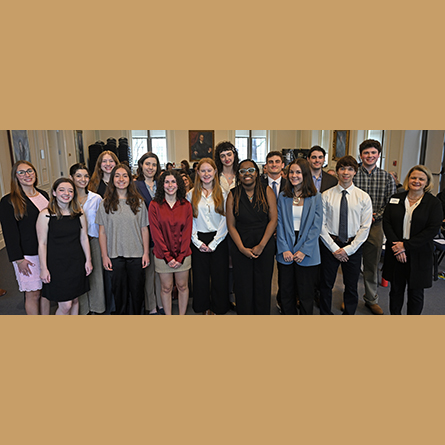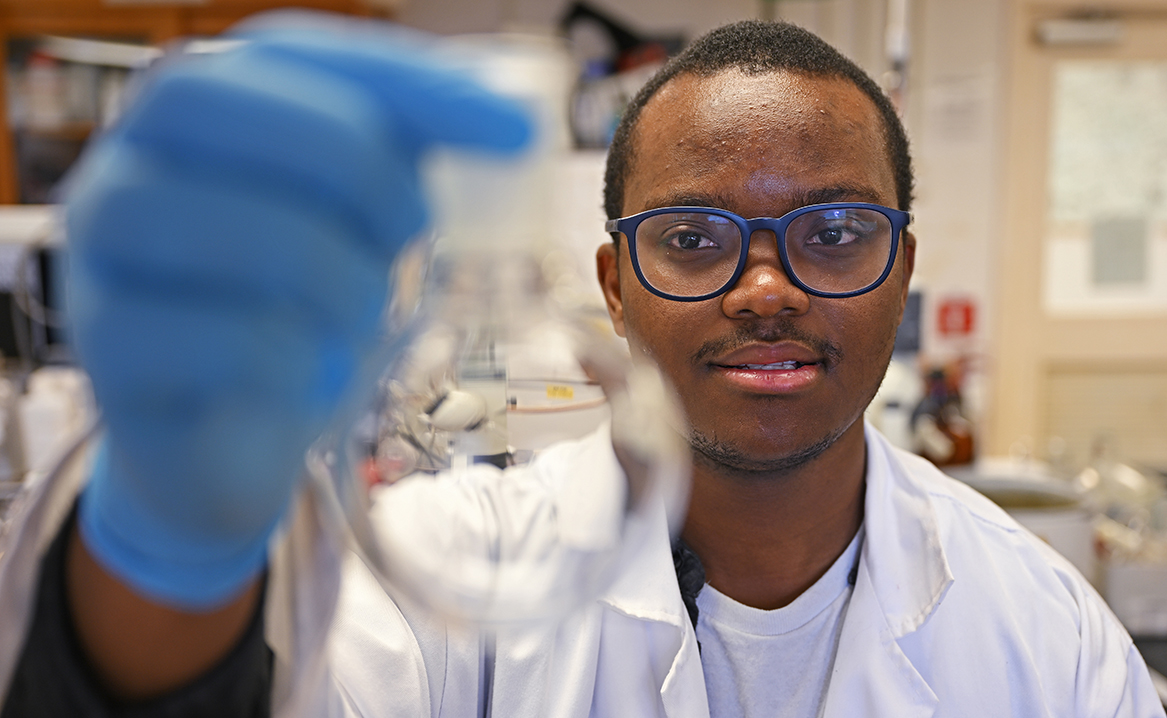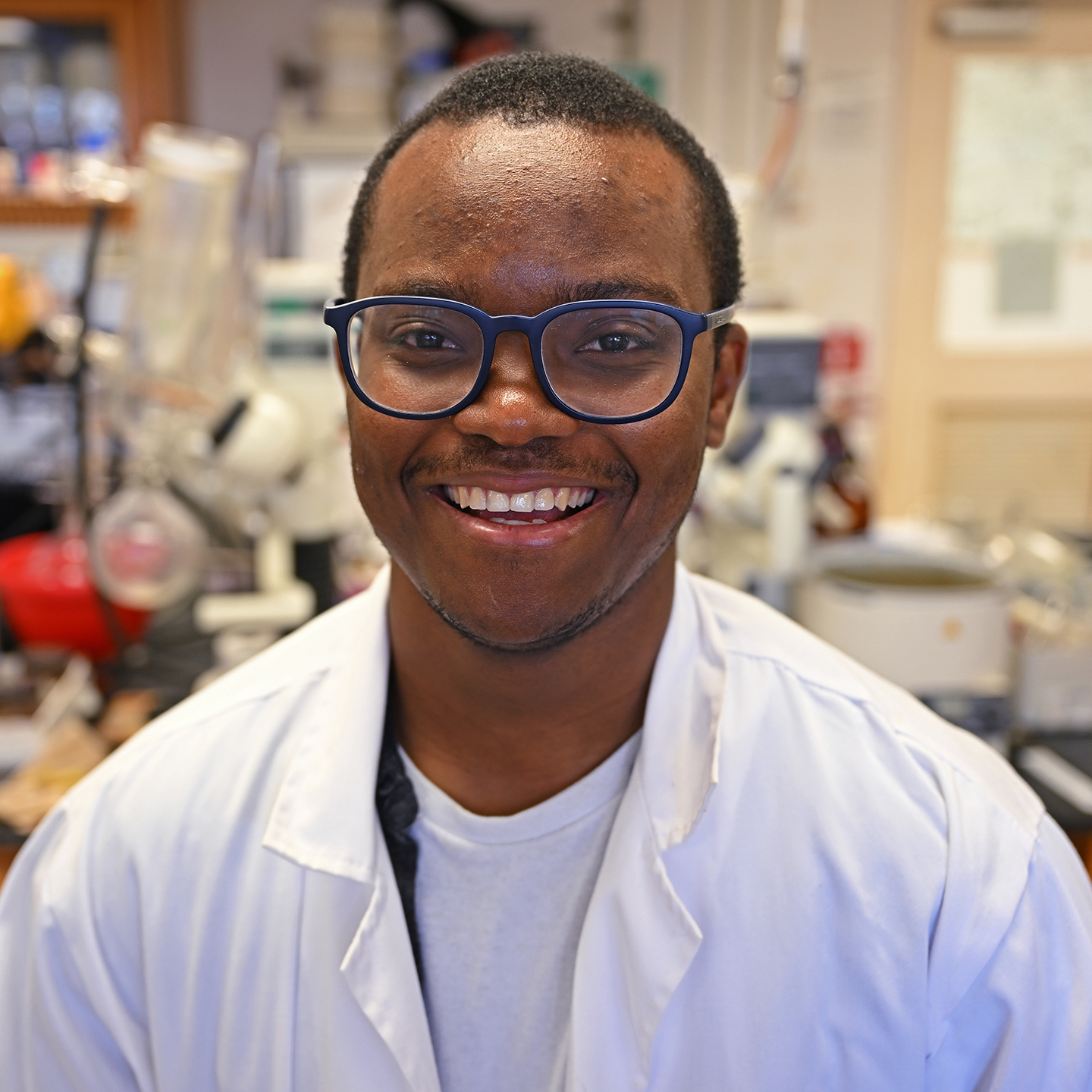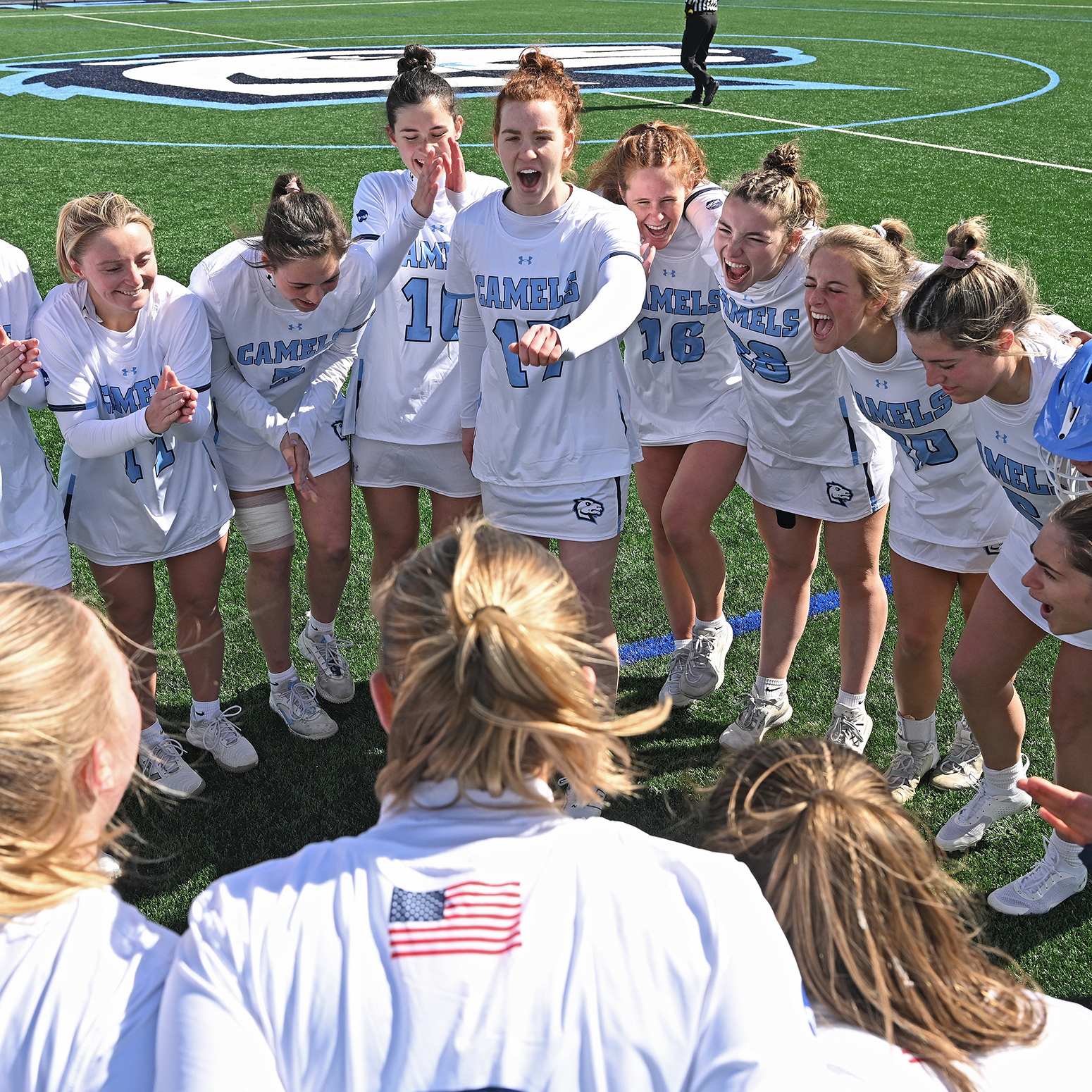
Admirabilis Kalolella ’23 wins Rising Black Scientists Award from Cell Press
Kalolella’s essay ‘My Christmas Holidays’ appears in the latest issue of 'Cell'
Admirabilis Kalolella ’23, a biochemistry, cellular and molecular biology major and scholar in Conn’s Toor Cummings Center for International Studies and the Liberal Arts, has been honored by Cell Press, Cell Signaling Technology and the Elsevier Foundation with a 2023 Rising Black Scientists Award.
As part of the award, which recognizes undergraduate scholars in the life and health sciences, Kalolella’s essay “My Christmas Holidays” was published in the Feb. 16 issue of Cell, a leading life sciences journal. Kalolella will also receive $10,000 to support his research and a $500 travel grant.
“Cell Press is proud to continue to support brilliant and inspiring Black scientists through these awards,” said Anne Kitson, managing director of Cell Press and the Lancet.
In his essay, Kalolella describes traveling with his family from their home in TDar es Salaam, Tanzania, to spend the Christmas holidays with his grandmother in their family’s rural home village of Mngeta, Tanzania.
“Life in rural Mngeta was a mixture of the old and the new. The old was the subsistence way of life, seeing my grandmother carry her hoe to her farm. The new were the technological transformations, such as the recently installed solar panel she used when darkness descended,” Kalolella writes.
“Every year, as per tradition, my father, a physician, set up a mini-clinic and absorbed me in his work. People would come in from afar; some had never seen a doctor in their lives. I took blood pressure and temperature readings and rode my bicycle to deliver medicines. This Christmas tradition brought a powerful revelation; it revealed how important giving back is. It formed the basis of who I am, wanting to use science to reach many.”

Those experiences inspired Kalolella to study biochemistry at Conn as a member of the Science Leaders program. He joined Professor Timo Ovaska’s organic synthesis lab, where he worked on synthesizing Frondosin D. Frondosin D, a natural product initially isolated from the marine sponge in Micronesia, Dysidea frondos, that is of interest for its potential anti-tumor and HIV properties. As a junior, he traveled to Cape Town, South Africa, to conduct research at the Holistic Drug Discovery and Development (H3D) Centre. There, he worked on repurposing and repositioning a compound known as AZD0156 from an anti-cancer to anti-malarial drug therapy.
“In addition to increasing my scientific knowledge, I was inspired by the tireless efforts of African scientists to change the narrative of a helpless Africa to one of innovation and scientific discoveries,” Kalolella wrote.
“In Cape Town, I worked in the lab with people that looked like me. I would discuss science with one of my mentors in Swahili, a first for me. In the USA, I often find myself alone,” he continued, remarking on the inadequate representation of Black researchers and physicians in the sciences.
Now back on campus, Kalolella has revived the Health Professions for Underrepresented Minorities club at Conn and serves as co-president. In his free time, he volunteers with EducationUSA-Tanzania. He credits Ovaska, the Hans & Ella McCollum ’21 Vahlteich Professor of Chemistry at Conn, and Jean C. Tempel ’65 Professor of Chemistry Marc Zimmer for mentoring him and helping him grow as a scientist, as well as Assistant Professor of History Matthew Swagler for helping him explore his interest in Africa. After graduation, he plans to conduct further infectious disease research before applying to medical school.
“I want to be a physician-scientist and heal people while simultaneously understanding the underlying mechanism of diseases to design better drugs. I want these products to benefit many around the world,” he said.
Kalolella says earning the Rising Black Scientists Award and being published in Cell has been humbling, but adds that the recognition also affirms that he and other aspiring Black scientists do belong and have an important place within the field.
“I hope through my story other underrepresented students can be inspired,” he said.

